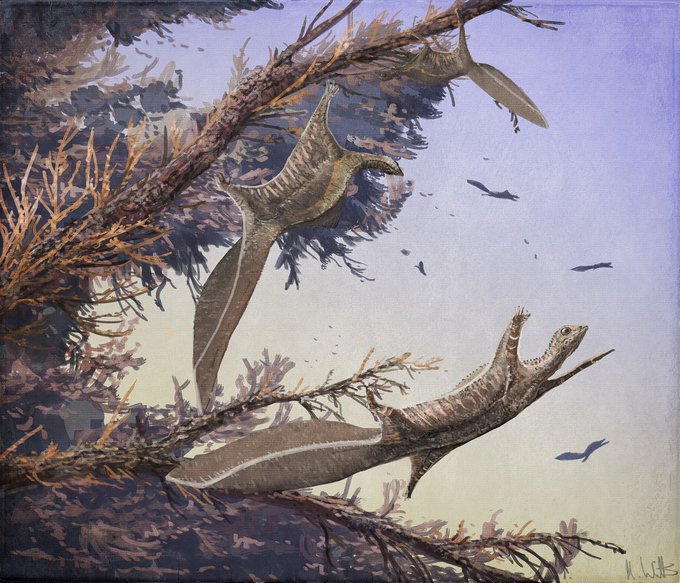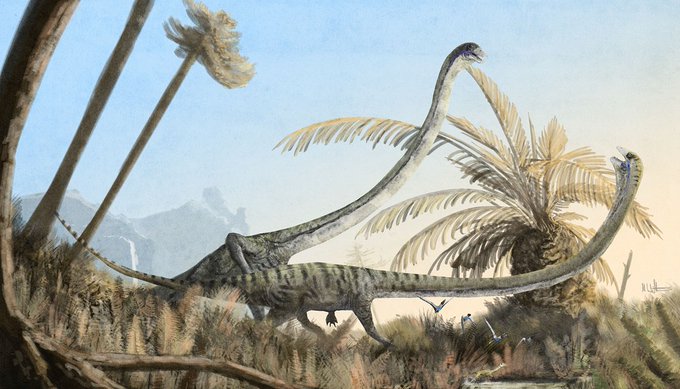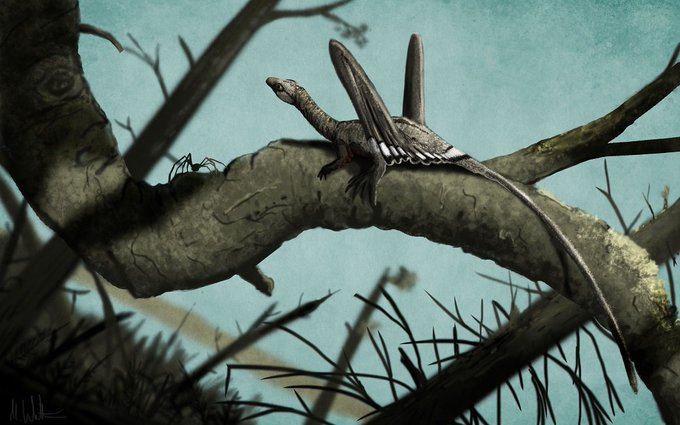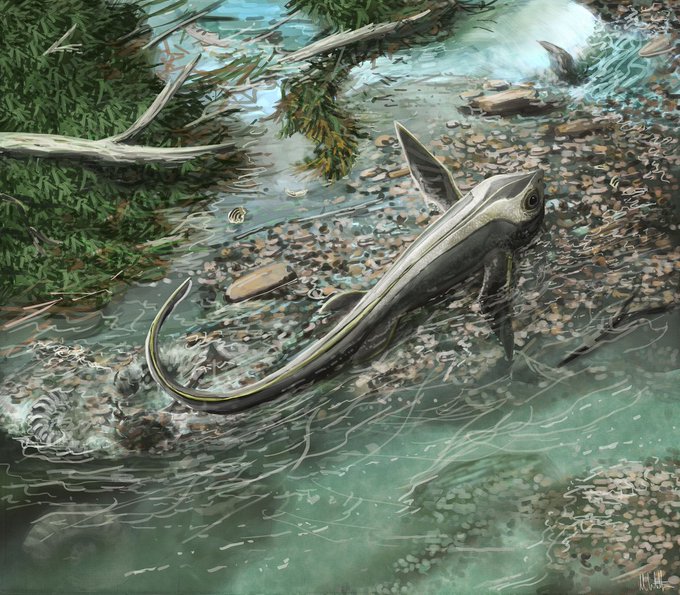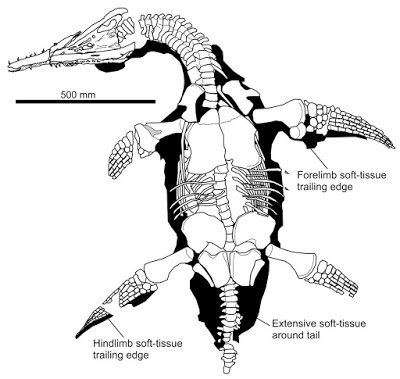Fossilfriday:のTwitterイラスト検索結果。 50 件中 3ページ目
Almost forgot #FossilFriday: here's some #paleoart of azhdarchid pterosaurs wandering over a riverbank, seen from above. Their pacing matches that of the azhdarchid ichnofossil, Haenamichnus, one of the only pterosaur tracks with an ID beyond 'pterosaur indet'.
For #FossilFriday: a rarely seen comparison between giant azhdarchid pterosaurs and a large male giraffe (yes, they can get this big!). Pterosaurs are Arambourgiania (left) and Hatzegopteryx - slender and robust takes on the giant azhdarchid bauplan. @Gizz47 is the scale bar.
A series of plesiosaur #paleoart for #FossilFriday: Jurassic marine species Attenborosaurus and Plesiosaurus, and the coastal/freshwater adapted Leptocleidus. It's very cool to think some plesiosaurs would be visible in rivers, lakes and estuaries.
New blog post for #FossilFriday: Can we predict the horn shapes of fossil animals? Perhaps, with enough data, we have more insight on horn sheath shape than we realised. Stars Triceratops, because it's a post about horns. Also features new #paleoart!
https://t.co/vHbiHaP0jF
For #FossilFriday: it's my fav section thru the lower jaw of Captorhinus aguti. An early reptile with multiple rows of teeth!
For #FossilFriday: the Life Aquatic, #paleoart edition. Portions of new paintings of fossil whales, fishes and inverts (agnathan is WIP).
For #FossilFriday: #Paleoart of Tusoteuthis, a giant coeloid from the Late Cretaceous, meeting Troodon on a beach.
#FossilFriday: #paleoart of Triassic reptiles, nature's most sensible animals. Hypuronector, Tanystropheus, Sharovipteryx & Cartorhynchus.
For #FossilFriday: new blog post: the life appearance of plesiosaurs, discussed. #paleoart https://t.co/E9mK4yY3JA
#FossilFriday: my older #sciart that happens to portray both "fleshy" and "lizardlike" lips on two compared dinos















